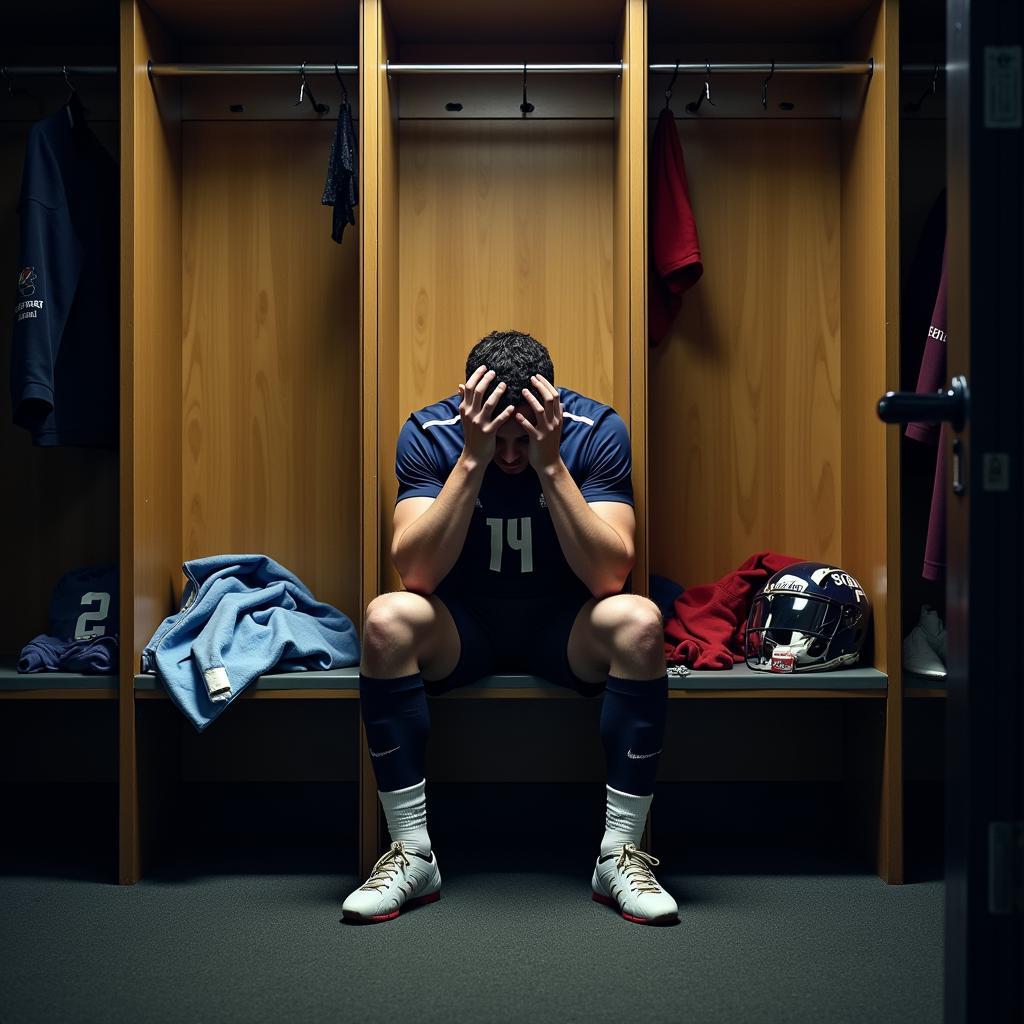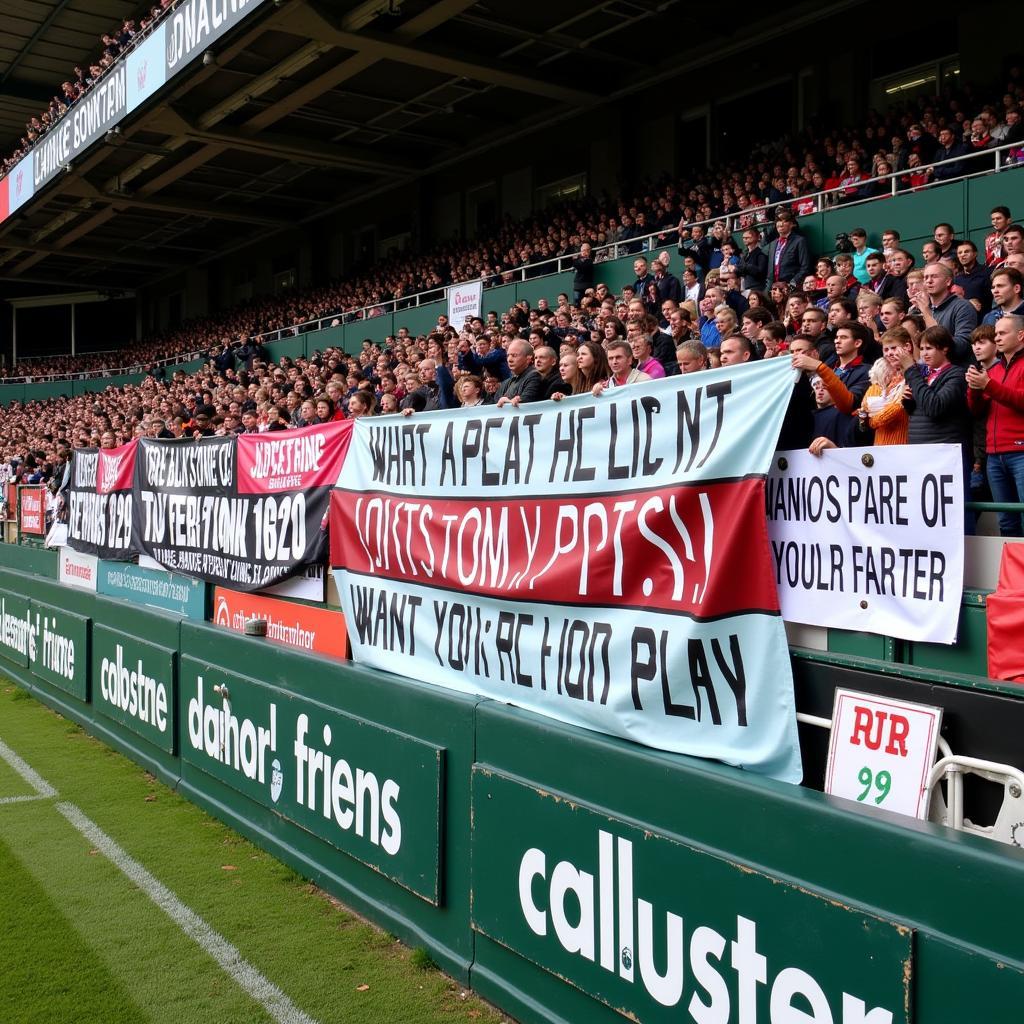The shocking image of a footballer attacked by a fan is a stark reminder of the dark side that can permeate the beautiful game. While football evokes passion and excitement like no other sport, it can also, unfortunately, become a breeding ground for aggression and violence, spilling from the stands onto the pitch and impacting players, staff, and fans alike.
When Passion Turns to Aggression: Understanding Fan Violence in Football
Fan violence, while not a new phenomenon, has seen a resurgence in recent years, casting a shadow over the sport we love. From verbal abuse and intimidation to physical assault and property damage, these acts of aggression have no place in the world of football.
There are numerous factors that contribute to this disturbing trend. Some argue that the tribalism inherent in football fandom, fueled by intense rivalries and a desire for their team to succeed at any cost, creates a climate where aggression can fester. Others point to societal issues like hooliganism, alcohol abuse, and a lack of adequate security measures at stadiums as contributing factors.
The Physical and Psychological Impact on Players
Being attacked by a fan can have a devastating impact on a footballer, both physically and psychologically. While physical injuries can heal with time, the mental scars of such an experience can linger, affecting their performance on the pitch and their overall well-being.
 Footballer suffering from anxiety after being attacked
Footballer suffering from anxiety after being attacked
Many players who have experienced such trauma speak about the fear and anxiety that follows them onto the field, making it difficult to focus on the game and impacting their confidence. The fear of being targeted again can be crippling, leading some players to question their career choices or even contemplate retirement.
The Collective Responsibility to Combat Fan Violence
Combating fan violence is not just the responsibility of law enforcement or footballing bodies but a collective effort that requires the participation of clubs, players, fans, and society as a whole.
 Fans holding banners promoting respect and fair play
Fans holding banners promoting respect and fair play
Clubs need to implement stricter security measures at stadiums, including enhanced surveillance, controlled access, and trained personnel to handle potential incidents. More importantly, they need to cultivate a culture of respect and tolerance within their fanbase, promoting positive fan behavior through targeted campaigns and initiatives.
Players, as role models, have a significant influence on fans and can use their platform to speak out against violence and promote a message of unity and respect.
Ultimately, it is the collective responsibility of everyone involved in the beautiful game to ensure that it remains just that – a sport that brings people together, rather than tearing them apart.
Conclusion
The incident of a footballer attacked by a fan is a stark reminder that the beautiful game can be marred by the ugly face of violence. We must remain vigilant in our efforts to create a safe and enjoyable environment for everyone involved. By working together, we can eradicate fan violence and ensure that football continues to be a source of joy, passion, and unity for generations to come.


